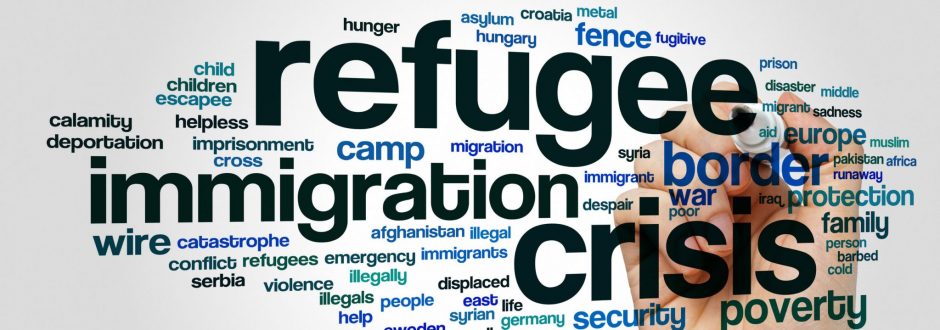An online workshop conducted by the Good Samaritan Asylum Seeker and Refugee Network heard personal accounts of the harsh impact of Australia’s response to people forced to flee their country, and issued a call to action, urging participants to write to Prime Minister Scott Morrison demanding change.
Almost 50 people attended the workshop last month, said Good Samaritan Sister Catherine Norman, a member of the Network, which was formalised after the last Good Samaritan Chapter gathering as a means of supporting Sisters working in various ministries with refugees and asylum seekers.
Speakers at the workshop included Brisbane-based migration and community engagement practitioner, Rebecca Lim; Julie Macken from Catholics for Refugees, and Leonie Dyer from the House of Welcome, an ecumenical ministry in western Sydney coordinated by St Francis Social Services, which exists to welcome, shelter and empower people seeking asylum and refugees.
“Participants at the workshop explored the reality of displaced persons throughout the world and practical ways of engaging with government to change harsh and often cruel policies,” Catherine said.
Leonie introduced Hayeda, an Iranian refugee who is being supported by the House of Welcome, and who shared her personal story of having to flee her homeland and the difficulty of not having permanent residence in Australia.
A refugee is defined as a person forced to flee their country of origin because of war, persecution and discrimination. Such is the case for thousands of Afghans, especially Hazara Afghans, since 2001.
Many asylum seekers with refugee visas are stuck in Indonesia waiting to be offered refuge by another country. The numbers increased dramatically with the fall of Kabul to the Taliban. Rebecca noted there were 79.5 million displaced persons worldwide in 2019.
Each year the Australian Government offers permanent residence to those who have applied for refugee settlement in Australia through its Humanitarian Settlement program. In its 2020-21 Budget, the Government dropped Australia’s annual humanitarian program intake from a target of 18,750 to a cap of 13,750. The roughly 10,000 people overseas who have been granted refugee visas to settle in Australia this year have been unable to do so due to COVID-19 border closures.
The Government’s policy, dating from 2013, is that refugees who arrive by boat will never be given permanent residence in Australia. Those on Australian Temporary Protection Visas must reapply every six years to be allowed to stay.
“Many waiting to be offered permanent residence are still in detention after eight years,” Catherine said.
Rebecca said there had been 2000 leaked reports from Manus Island and Nauru of assaults, sexual abuse, self-harm and child abuse. Fifty-seven asylum seekers have died in the care of the Australian Government.
People who were transferred to Australia for medical care under the now defunct Medivac legislation are still in detention, while some have been released into community detention with very little support and required to work, relying on community and faith groups to survive.
The workshop participants heard that the situation in Afghanistan is dire for those wishing to escape the Taliban. Since the fall of Kabul last month, Australia has agreed to take in 3000 Afghan refugees within its existing humanitarian cap. Canada and the UK have announced they will each resettle 20,000 Afghans.
Both Rebecca and Julie Macken from Catholics for Refugees asked those present to step up now as a matter of urgency to speak out and advocate for Afghan refugees.
Catholics for Refugees is a coalition of Catholic organisations which has launched a 150 Days of Action campaign to change Federal Government policy and increase support for refugees and asylum seekers.
The national campaign, being coordinated by the Sisters of St Joseph and the Justice and Peace Office of the Catholic Archdiocese of Sydney, calls on people to write to their local politicians urging them to:
- Provide income support and a financial safety net for all people seeking asylum in Australia;
- End temporary protection visas and create a clear pathway to permanent residency; and
- Ensure access to family reunion for refugees and people seeking asylum in Australia.
Catherine said those present for the Good Samaritan Asylum Seeker and Refugee Network workshop resolved to take up that call to action.
“At the end of the workshop we resolved to write to the Prime Minister calling for action on each of those three points and to share the call to action and a template letter with people in our networks,” she said.
“The Government’s refugee and asylum-seeker policy is unjust and all Australians, especially Christians, need to step up and demand change.”
This article was published in the September 2021 edition of The Good Oil.


